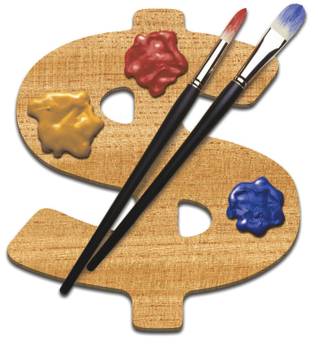Friday, Sept. 11, 2009 | 2 a.m.
Sun Coverage
A week or so ago, I wrote a review of a show playing out of town. Way out of town. About 600 miles away, in San Francisco.
The show I traveled to see was the musical “Wicked,” by the way. My review for the Las Vegas Sun stressed that it was “well worth the trip,” that the flight is cheap, and the ticket costs much less than something comparable on the Strip.
After the review was written, but before it was published, I read an essay in the September issue of Harpers Magazine, about how education has been monetized and our whole cultural language has been modified and co-opted and viewed in terms of its value to the GDP.
It got me thinking about how I think and write about the arts, and whether that had changed since I moved to Las Vegas. I realized that I had written that “Wicked” review, in a way, to justify writing about something happening out of our readership range, to make a case to my editors about its value to our readers. I was coming at this cultural event from a “worth it” economic basis, perhaps at the expense of exploring the essential value of the show itself.
In that Harper’s essay, titled “Dehumanized: When Math and Science Rule the School,” Mark Slouka describes how state and federal planners are now discussing the teaching of writing skills and the arts in terms of “return on investment,” increased efficiency and national competitiveness. “From the local PTA meeting to the latest Presidential Commission on Education, the only subject under discussion, the only real criterion for investment — in short, the alpha and omega of educational policy — is jobs.”
And we’ve fallen into thinking about the arts and culture in this same monetized, relentlessly vocational way.
“It can be touching to watch supporters of the arts contorting themselves to fit,” says Slouka, quoting a brochure that posits that supporting the arts in our schools is a good idea because “state and local leaders are realizing that the arts and culture are vital to economic development.”
It’s depressing and demoralizing to think of education, not to mention the arts and culture, in this reductive, money’s-worth manner.
And I wonder if I’ve perhaps been subsumed into that reflexive mode of thinking about shows I review: Will such-and-such survive economically? Will it pay off? Will it make money for the producers? Will it win?
That’s not what the arts and entertainment are really about, of course. For the producers, it is, sure, and as this town’s economy is based on entertainment, art can come to mean “product” to some.
But not for the artists and not for the audiences — that’s us, the consumers of art and entertainment, if you must. We can — maybe we must — remember to consider art from a larger, deeper perspective.
“Wicked,” for instance, although it is a huge commercial success, is not just a financial winner. It’s beautiful, too, and thought-provoking and surrounded by a sense of occasion. All those things that a cultural event is and should be.
This is not to say that we have to leave town to experience art. There are plenty of shows presented here in Las Vegas that should be treasured, not just measured or otherwise rated by how much they’ve made or how popular they are or how many have been served.
What, then, if we’re not looking at the bottom line, is the worth of a play, or a concert or a painting?
The arts should be not valued just for return and reward, but because, as Slouka reminds us, “they complicate our vision, pull our most cherished notions out by the roots, flay our pieties ... Because they expand the reach of our understanding (and therefore our compassion), even as they force us to draw and redraw the borders of tolerance.”
This, Slouka suggests, is value — “and cheap at the price ... Considering where the rising arcs of our ignorance and our deference lead ... given our fondness for slogans, our childlike susceptibility to bullying and rant, our impatience with both evidence and ambiguity, what could earn us, over time, a better rate of return?”


Join the Discussion:
Check this out for a full explanation of our conversion to the LiveFyre commenting system and instructions on how to sign up for an account.
Full comments policy